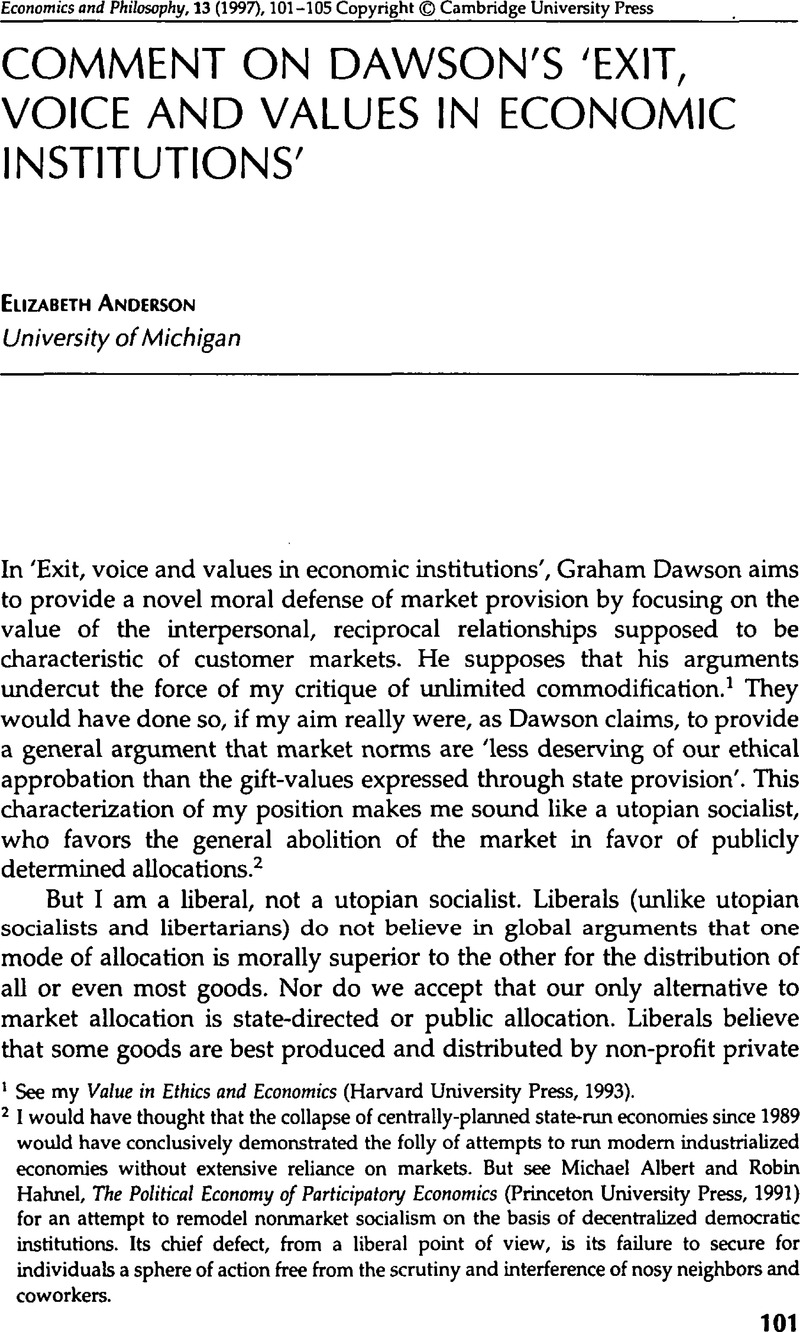No CrossRef data available.
Article contents
Comment on Dawson's ‘Exit, Voice and Values in Economic Institutions’
Published online by Cambridge University Press: 05 December 2008
Abstract

- Type
- Comments
- Information
- Copyright
- Copyright © Cambridge University Press 1997
References
1 See my Value in Ethics and Economics (Harvard University Press, 1993)Google Scholar.
2 I would have thought that the collapse of centrally-planned state-run economies since 1989 would have conclusively demonstrated the folly of attempts to run modern industrialized economies without extensive reliance on markets. But see Albert, Michael and Hahnel, Robin, The Political Economy of Participatory Economics (Princeton University Press, 1991)Google Scholar for an attempt to remodel nonmarket socialism on the basis of decentralized democratic institutions. Its chief defect, from a liberal point of view, is its failure to secure for individuals a sphere of action free from the scrutiny and interference of nosy neighbors and coworkers.
3 Thus, the dissonance I feel in Dawson's seamless transition from talk of the ‘gift-value relationships manifest in … state … institutions’ to ‘intimacy and commitment in personal relationships’. The civic fraternity expressed in universalized state benefits embodies some gift norms, but thankfully not norms of intimacy, which are exclusive and private.
4 Walzer, Michael provides the most cogent and concise account of liberalism so understood in ‘Liberalism and the art of separation’, Political Theory, 12 (1984): 315–30CrossRefGoogle Scholar.
5 Value in Ethics and Economics, pp. 166–7.
6 See Sunstein, Cass, Democracy and the Problem of Free Speech (Free Press, 1993)Google Scholar.
7 See Hochschild, Arlie, The Managed Heart (University of California Press, 1983)Google Scholar.


